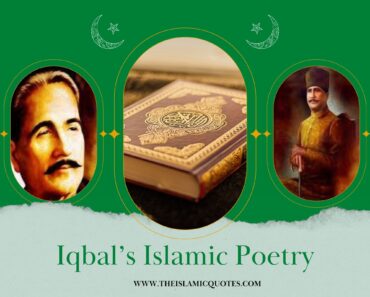Best Muslim Kings: Islamic history is replete with remarkable leaders and rulers who left a lasting impact on the world. From the spread of religion to the establishment of thriving civilizations, Muslim kings played a crucial role in shaping the world as we know it today.
In this post, we will delve into the lives and legacies of some of the best Muslim kings in history. From the legendary Caliph Umar al-Maktoum to the powerful Sultan Suleiman the Magnificent, we will explore the stories of these remarkable leaders and the mark they left on history.
Join us on a journey through time as we pay tribute to the best Muslim kings in history, in no particular order.
1 – Umar ibn Abdul Aziz (682-720)
Umar ibn Abdul Aziz was an Umayyad caliph who ruled from 717 to 720. He belonged to Saudia Arab and dies in Aleppo Syria. His kingdom was wide and included present-day southwestern Pakistan, Iran, Iraq, Egypt, Palestine, Lebanon, and more. He is known for his piety, justice, and good governance.
During his brief reign, he implemented a number of reforms that improved the lives of his subjects, including;
- The abolition of taxes that unfairly burdened the poor
- The vast spread of Islam
- The establishment of a public treasury to provide for the needy
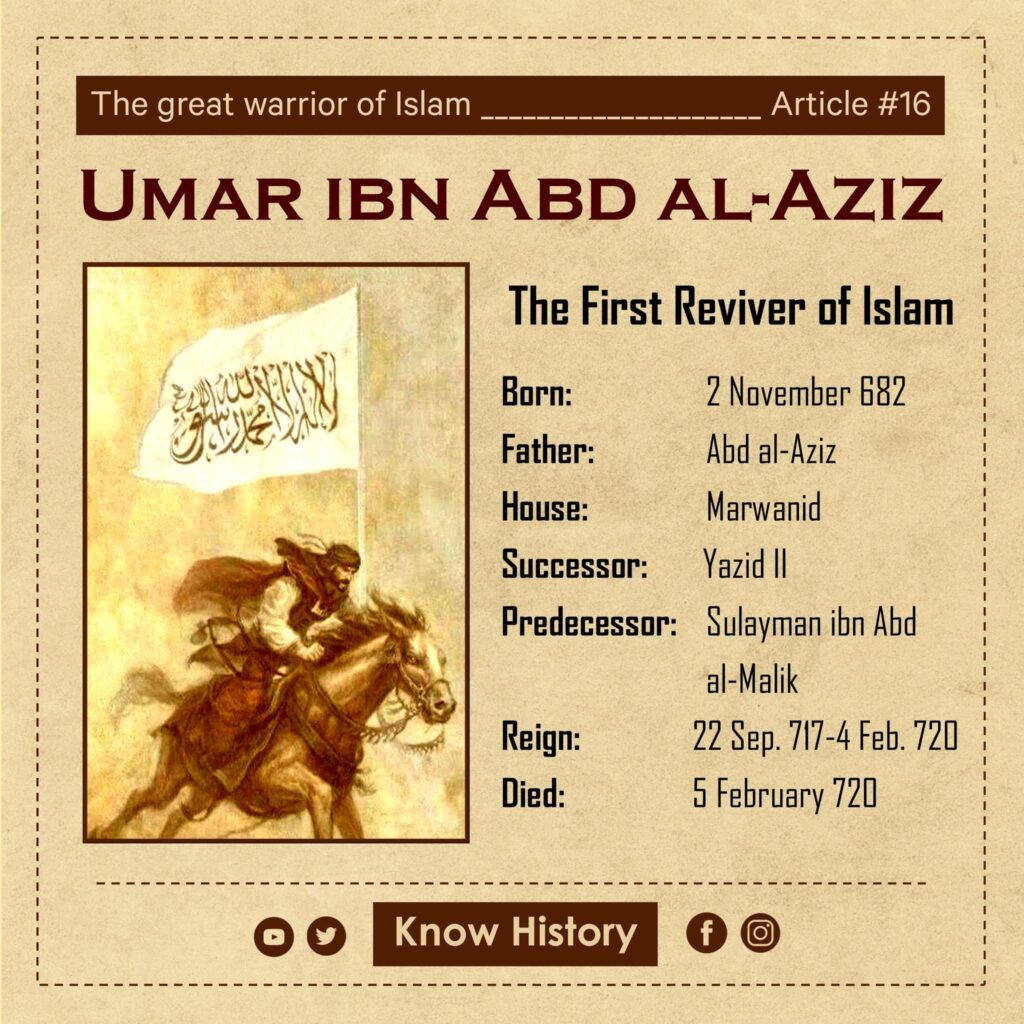
2 – Harun al-Rashid (763-809)
He was the fifth caliph of the Abbasid dynasty and is known for his patronage of the arts and sciences. He was born in Rey, Iran, and spent most of his reign in Baghdad, which was the capital of the Abbasid caliphate. Some of his key achievements include;
- During his reign, the Abbasid caliphate was at the height of its power and influence, and Baghdad became a center of learning and culture.
- Promoted the Arabic language through the translation of Greek and Roman texts into Arabic.
3 – Salahuddin Ayyubi (1137-1193)
Salahuddin Ayyubi, also known as Saladin, was a Muslim military leader and the first sultan of Egypt and Syria. He was born in Tikrit, Iraq, and spent most of his career fighting against the Crusaders in the Middle East.
Some of his major achievements include;
- Retaking Jerusalem from the Crusaders in 1187
- Ending the Christian occupation that lasted for almost a century
- Numerous military victories in Egypt and Syria
I would also recommend that you learn about these Muslim Rulers and Leaders Who Changed History.
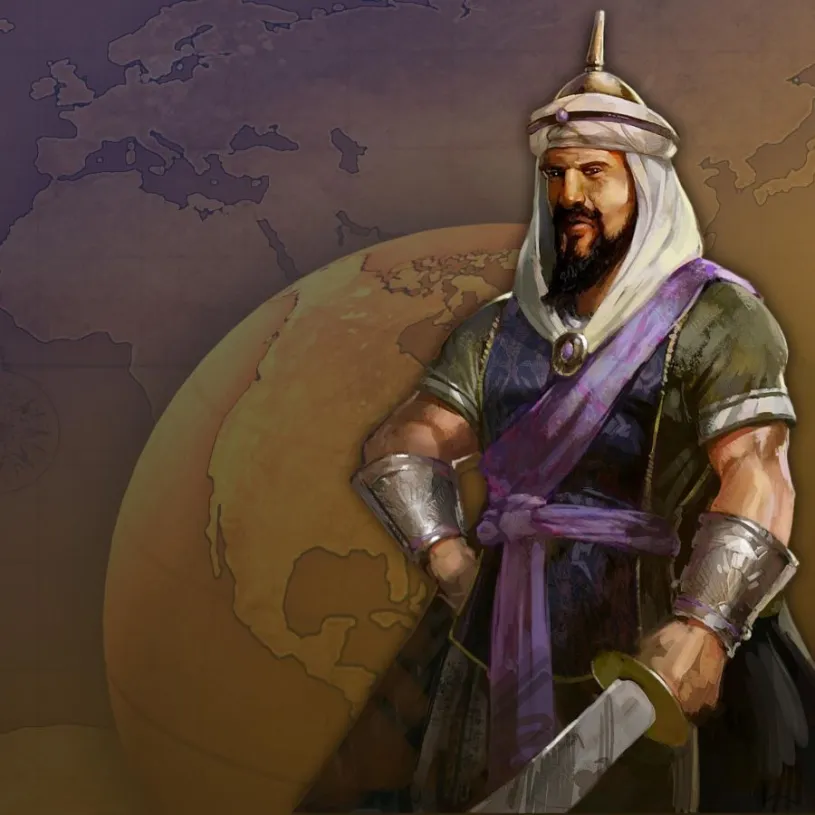
4 – Caliph Umar al-Maktoum RA (632–634)
Caliph Umar Al Maktoum (RA), the second Caliph of the Rashidun Caliphate, was a leader of immense influence and played a crucial role in the development of Islam during his reign.
Throughout his tenure, Umar (RA) accomplished several noteworthy feats that continue to impact the Muslim world to this day. Some of them include;
- The expansion of the Muslim empire. Umar had a clear vision of the potential of Islam to spread beyond the Arabian Peninsula and he oversaw the acquisition of several territories, including Syria, Iran, and Egypt, which greatly increased the reach and influence of Islam.
- He (RA) was also known for his farsighted economic policies, which laid the foundation for the prosperity of the Muslim world.
- He introduced measures to regulate the economy, such as the taxation system, which helped to create stability and ensure the prosperity of the Muslim community.

5 – Abdullah II of Jordan
He is known to be a strong and effective leader due to his efforts in promoting peace, stability, and modernization in Jordan, as well as his efforts to foster better relationships with other countries and promote interfaith dialogue.
Additionally, his commitment to protecting the rights and well-being of Jordan’s citizens, as well as his dedication to preserving Jordan’s rich cultural heritage, may also be factors that contribute to his popularity and esteem.
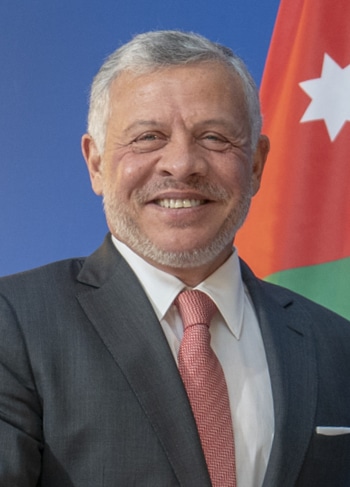
6 – King Adeniji Adele
King Adeniji Adele, also known as King Adele II, was a monarch of a Yoruba kingdom in Nigeria during the late 19th and early 20th centuries. During his reign, King Adele II made several significant contributions to his kingdom and beyond, which have left a lasting impact on Nigeria’s history and development.
One of King Adele II’s notable achievements was his efforts to modernize his kingdom and improve the lives of its citizens.
He introduced new technologies and innovations, such as the use of steam engines for transportation and the installation of electricity, which improved trade and commerce in the kingdom.
He also introduced new crops and farming methods, which increased food production and helped to alleviate poverty.

King Adele II was also known for his leadership skills and diplomatic prowess. He was able to maintain good relations with other kingdoms and European colonial powers, which allowed him to secure trade agreements and protect his kingdom’s independence.
He was also a skilled mediator, using his knowledge and influence to resolve conflicts and maintain peace between rival factions and kingdoms.
In addition to these achievements, King Adele II was also a strong advocate for the rights of his people.
He was known to be fair and just during his rule, and he worked tirelessly to ensure that the needs of his citizens were met. He was also a defender of human rights and was known to have spoken out against slavery and other forms of oppression.
7 – Sultan Suleiman the Magnificent
Sultan Suleiman the Magnificent, also known as Suleiman the Lawgiver, was the 10th and longest-reigning Sultan of the Ottoman Empire from 1520 to his death in 1566.
He is widely regarded as one of the greatest rulers in the history of the Ottoman Empire and the Islamic world.
During his 46-year reign, Sultan Suleiman achieved numerous remarkable feats, both domestically and internationally.
Firstly, he expanded the Ottoman Empire to its greatest territorial extent, conquering parts of Hungary, Iraq, Syria, and Egypt, and adding significant territories to the empire. He also established Ottoman rule over the North African coastal cities of Algiers, Tunis, and Tripoli.
Sultan Suleiman was also a military strategist, leading successful campaigns against the Safavid Empire, the Habsburgs, and the Knights of St. John in Rhodes.
He maintained a strong navy, which was instrumental in securing Ottoman control over the Mediterranean and ensuring safe trade routes for merchants.
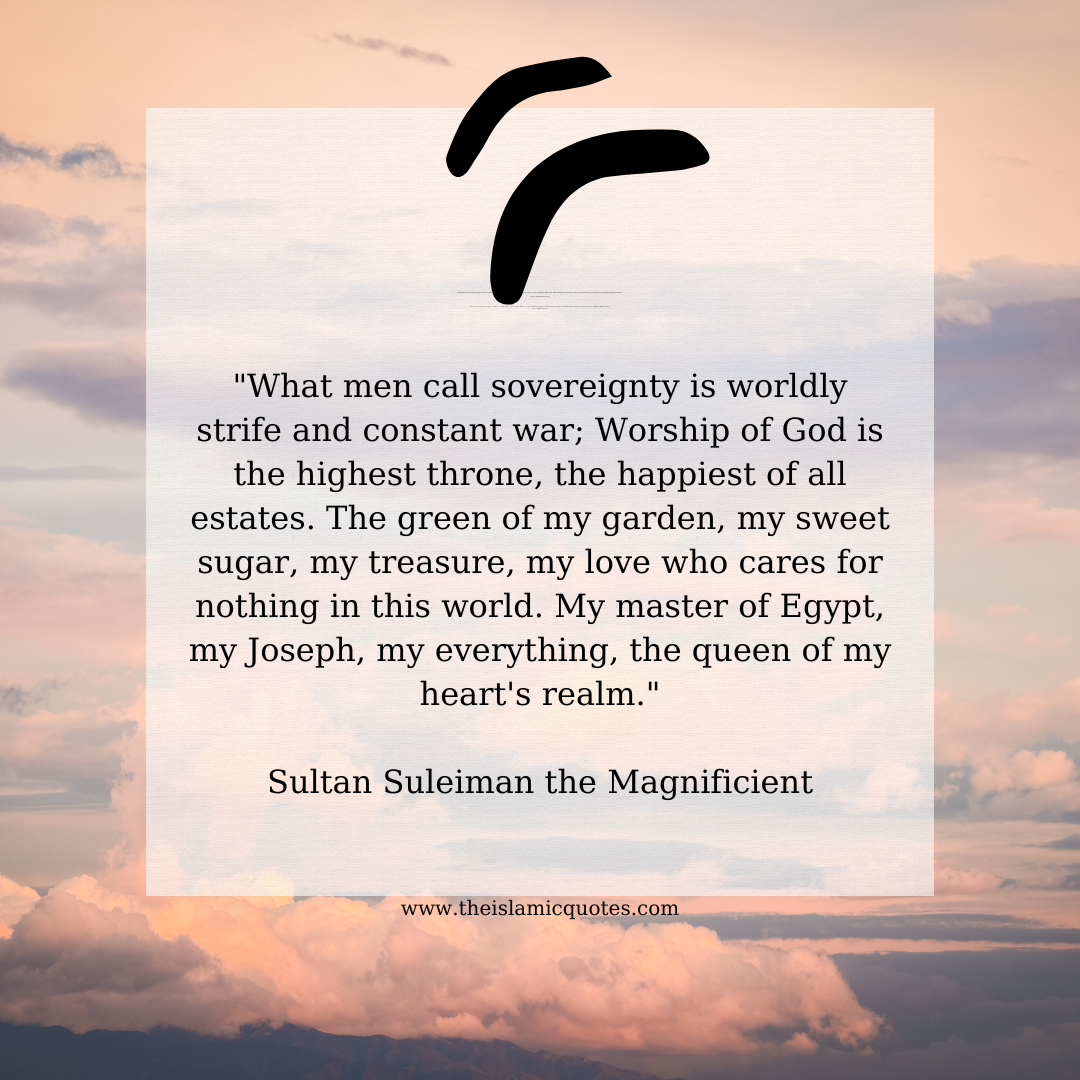
8 – King Po Saut
King Po Saut was a wise and just ruler. He was known for his integrity, fairness, and compassion, and was loved by his subjects for his kind and generous nature.
He believed in treating everyone with respect and dignity, regardless of their background or station in life.
This earned him great respect and admiration from his subjects, and he was widely seen as a symbol of hope and prosperity.
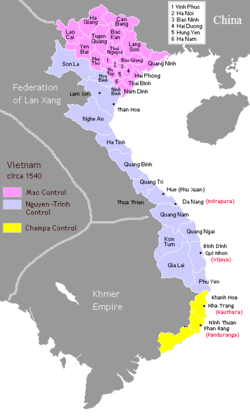
9 – Mahmud Iskandar Shah of Perak
Mahmud Iskandar Shah of Parek was a notable Muslim king known for his visionary leadership, commitment to education, and military prowess.
He implemented policies to spur economic growth and improve the standard of living for his subjects.
He founded numerous schools and universities, making education accessible to all, and turning the kingdom into a hub of learning and intellectual activity.
As a military leader, he expanded the kingdom and secured it against internal and external threats. His devotion to both religion and his subjects earned him great respect and admiration.
Overall, King Mahmud Iskandar Shah’s legacy has had a lasting impact on his kingdom and serves as an example of great leadership in the Muslim world.
10 – Iltutmish (1211-1236)
Iltumish, also known as Shams-ud-Din Iltutmish, was a ruler of the Delhi Sultanate in the early 13th century.
He was a Turkic prince and served as a slave warrior before rising to the position of sultan through his military conquests and political acumen.
Iltumish is considered one of the greatest kings of the Delhi Sultanate and is credited with laying the foundation for its stability and expansion.
He was a devout Muslim and took measures to spread the faith in India, including constructing several mosques and promoting religious education.
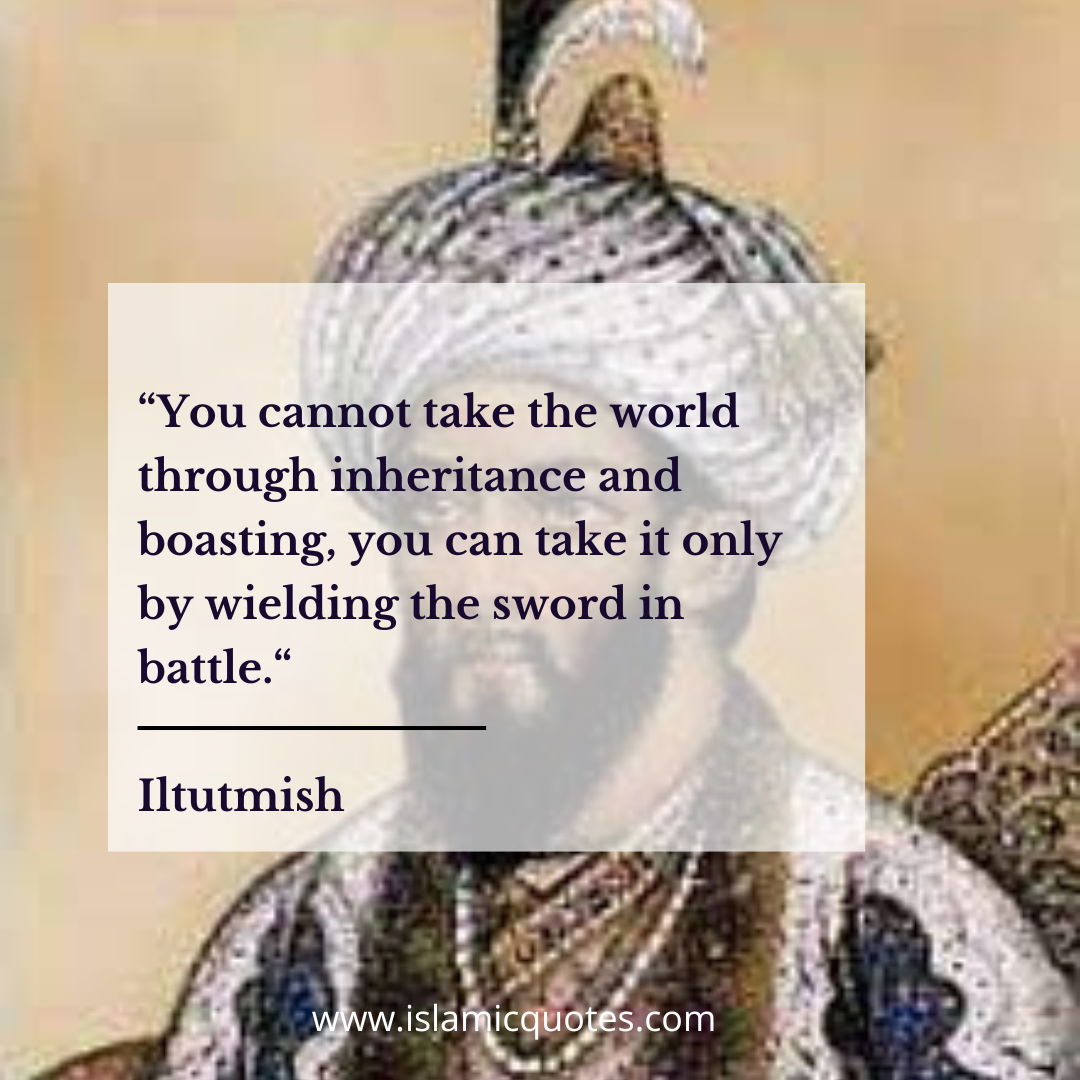
FAQs
Q. Who is the greatest man in Islam?
The Holy Prophet Muhammad (P.B.U.H.) is known to be the greatest man in Islam.
Q. Who is best Islamic sultan?
Sultan Mahmud (971-1030), also known as Mahmud of Ghazni, is referred to as the best. Islamic sultan. Being the first ruler to use the title Sultan, which means “authority,” he symbolized the absolute extent of his authority while maintaining an ideological tie to the suzerainty of the Abbasid Caliphs.
Q. Who is the bravest Sultan?
Sultan Suleiman the Magnificient is known to be the bravest out of the Sultans.

